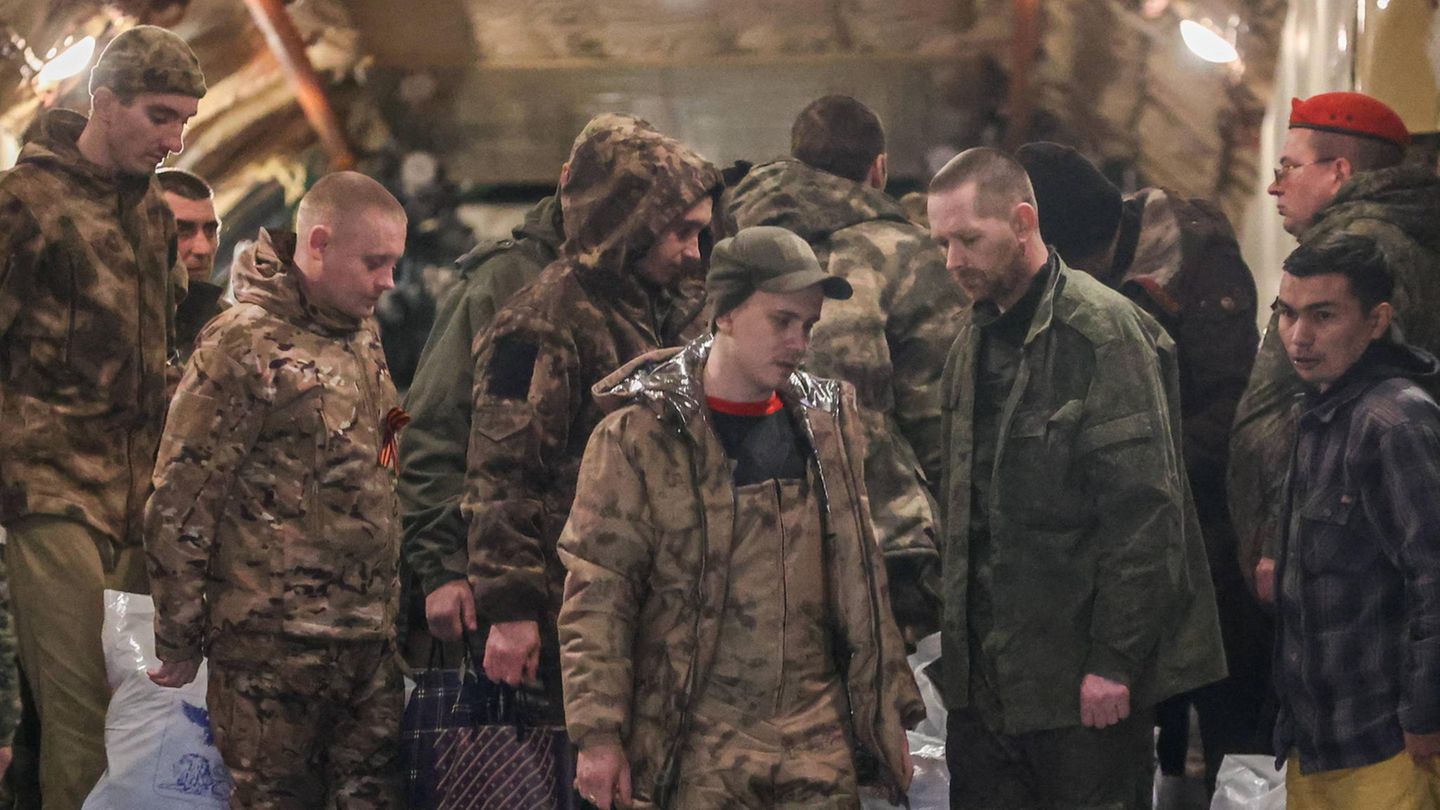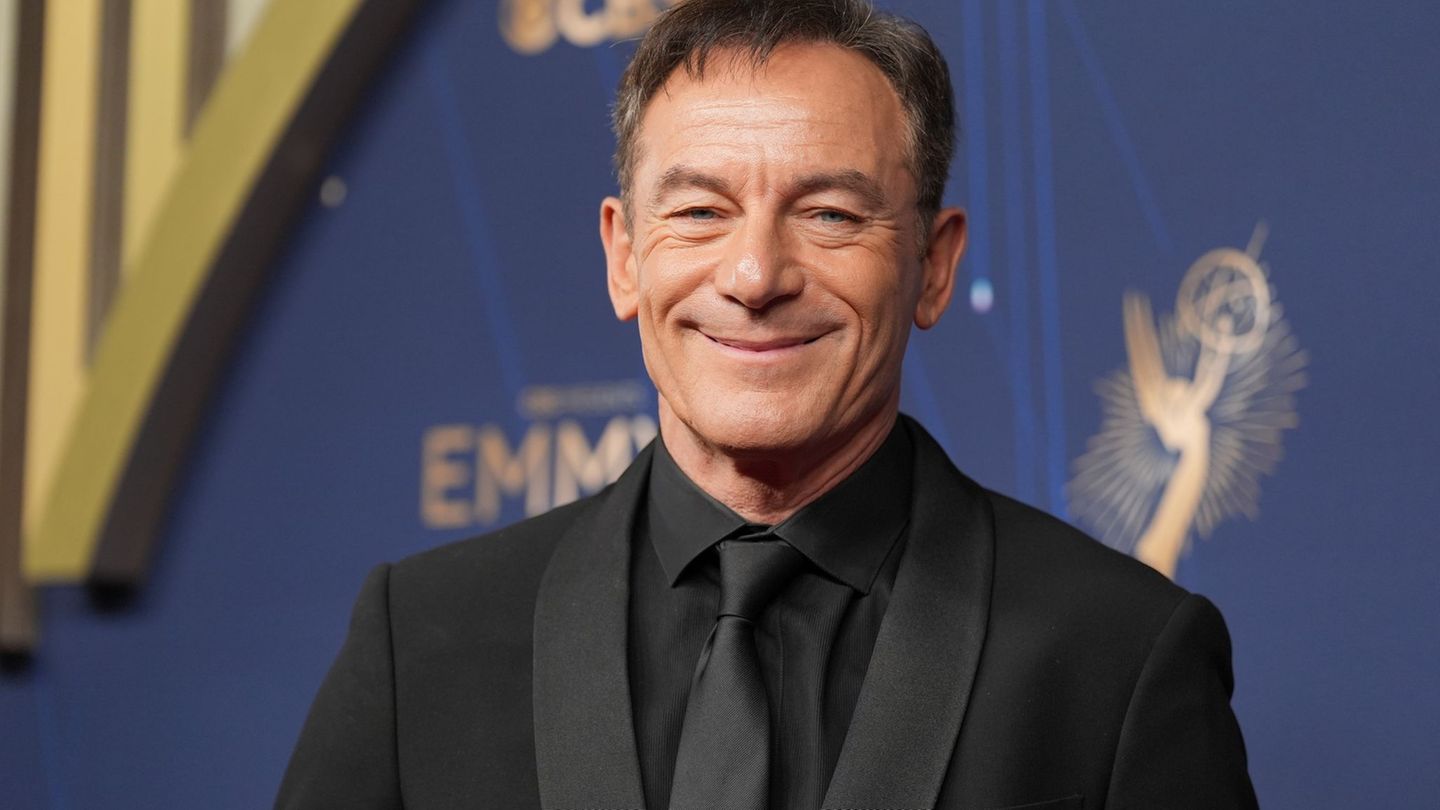While Russia is said to be mistreating Ukrainian soldiers in its prison camps, Ukraine wants to present a better image. It gives an insight into the prison conditions of Russian prisoners in western Ukraine.
In single file, with their eyes down, the prisoners of war march in their work clothes and boots towards the canteen for lunch. There is pea soup, buckwheat porridge and beetroot salad with bread. Suddenly everyone stands up and shouts at the same time in Ukrainian: “Thanks for the food!” The AFP news agency was now able to visit a prisoner of war camp that was set up in western Ukraine last year.
The Ukrainian leadership wants to show that Russian prisoners of war are treated decently – in contrast to Ukrainian prisoners who, according to information from Kiev and Western human rights organizations, are mistreated in Russian camps.
The spokesman for the Ukrainian authority responsible for prisoners of war, Petro Yatsenko, did not say how many prisoners were held at the facility. But an employee reports that food is served in three shifts in a room that seats 120 people.
Last exchange in August
The Russians, aged between 19 and 58, are waiting to be exchanged for Ukrainian prisoners of war. Since the beginning of the war, 2,598 captured Ukrainians have returned and, according to the Ukrainian authorities, there have been 48 prisoner exchanges. The last exchange took place in August, but only a few soldiers returned. According to Yatsenko, Moscow broke off the negotiations.
One of the Russian prisoners says he has been in the camp for more than a year. “It’s strange. The Russians are here and they don’t want them back,” says Yatsenko. The camp has an Orthodox chapel and a prayer room for the 15 Muslim prisoners. The beds in the dormitory are marked with a photo, name and date of birth.
Injured prisoners are treated in the hospital. One of them is disfigured by shrapnel and can barely speak. “I can’t eat,” says the 46-year-old, his shoulders hunched. He comes from Bryansk, near the Ukrainian border, and says he only fought for two weeks before coming to the camp almost four months ago.
During the visit, journalists are shown rooms with televisions and coolers. The inmates are allowed to make phone calls, but their conversations are monitored. A small shop sells sweets, cigarettes and cola. In the library, prisoners can borrow books in Russian – from Dan Brown to Dostoyevsky.
Invasion by Russia
Shocking, disturbing, infinitely sad: images from 500 days of war in Ukraine
“Fear of the outside world in Ukraine”
Each inmate costs the state around 250 euros per month. “We don’t offer them evening wear,” says Jatsenko, but everyone has their own soap, toothbrush and razor. Anyone who is at risk of suicide receives psychological support. According to Yatsenko, the prisoners have “no reason to flee” but rather “fear of the outside world” in Ukraine. They just wanted to go back home.
Yatsenko encourages journalists to speak to selected prisoners who are willing to do so. An inmate from Chukotka, in the far north-east of Russia, bred reindeer and worked as a fisherman before the war. He says he fought for only two months before his capture in July. Life expectancy at the front is not high, he says: “It’s measured in hours.”
He reports on the routine in the camp, which is the same for all inmates: 6 a.m. wake-up, 6:50 a.m. breakfast, 8:30 a.m. to 4:30 p.m. work in workshops, 10 p.m. bed rest. Every day there is a minute’s silence for the Ukrainian martyrs, in which the prisoners must take part. “They didn’t come to our country as tourists,” says Yatsenko. “They should know what they have gotten themselves into and not forget it.”
Source: Stern
I have been working in the news industry for over 6 years, first as a reporter and now as an editor. I have covered politics extensively, and my work has appeared in major newspapers and online news outlets around the world. In addition to my writing, I also contribute regularly to 24 Hours World.




